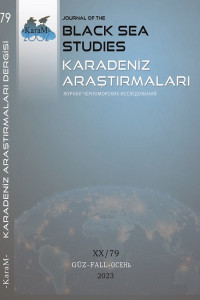US WITHDRAWAL PROCESS FROM AFGHANISTAN AND ITS EFFECTS ON INTERNATIONAL RELATIONS
US WITHDRAWAL PROCESS FROM AFGHANISTAN AND ITS EFFECTS ON INTERNATIONAL RELATIONS
Author(s): Tuba Taşlicali Koç, Burak Şakir ŞekerSubject(s): Political Theory, International relations/trade, Peace and Conflict Studies
Published by: Karadeniz Araştırmaları Merkezi
Keywords: Afghanistan; USA Withdrawal; Taliban; Social Constructivism; Maturity Theory;
Summary/Abstract: This article’s main concern is to come to an understanding of the reasons why the Afghan army could not be successful against the Taliban during the withdrawal process and what the effects were of this failure on international relations. The main argument in the study about the failure of the Afghan Army is that because the transition stages from the lower identity to the upper have not been completed, and the identity structure was left as a tribal-based one rather than integrated Afghan identity, the loyalty to the state could not be fulfilled and therefore the practices like bribery or favouritism in assignments led to corruption in the system causing an imperfect structure with a failure against the Taliban. As to the effects on international relations, the withdrawal of the USA from the region caused the power vacuum in Afghanistan to deepen even more. Whilst analyzing the aspects of the reasons why the Afghan army had failed against the Taliban, the on-site observation method is used lasting 6 months between June 2017 and January 2018 and the on-site interviews were personally carried out during this aforementioned time period.
Journal: Karadeniz Araştırmaları
- Issue Year: 2023
- Issue No: 79
- Page Range: 533-558
- Page Count: 26
- Language: English

